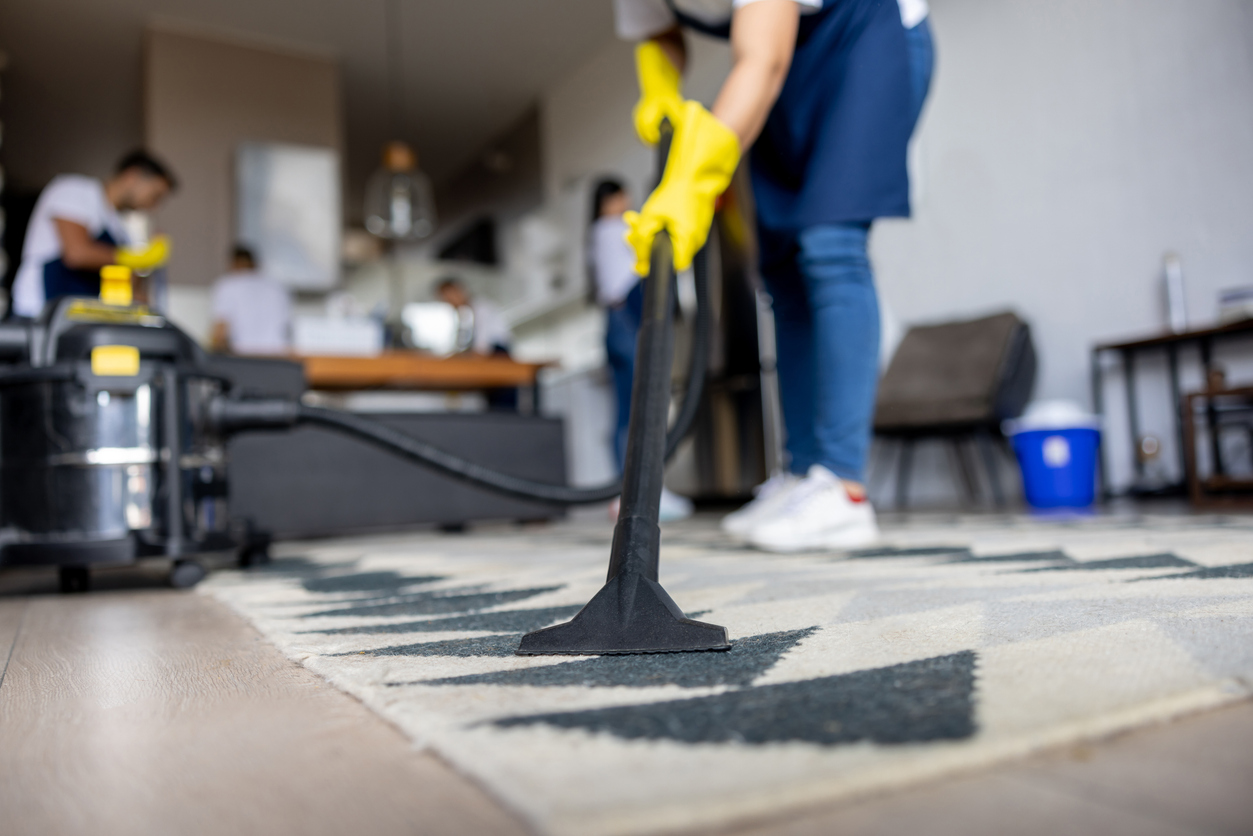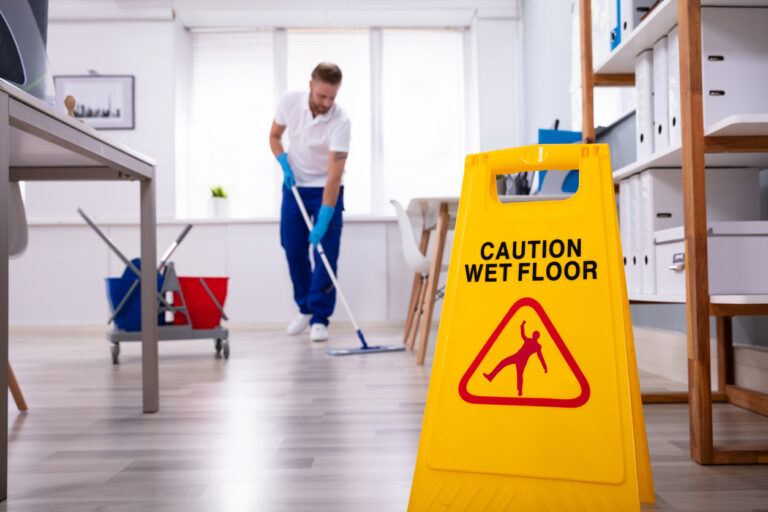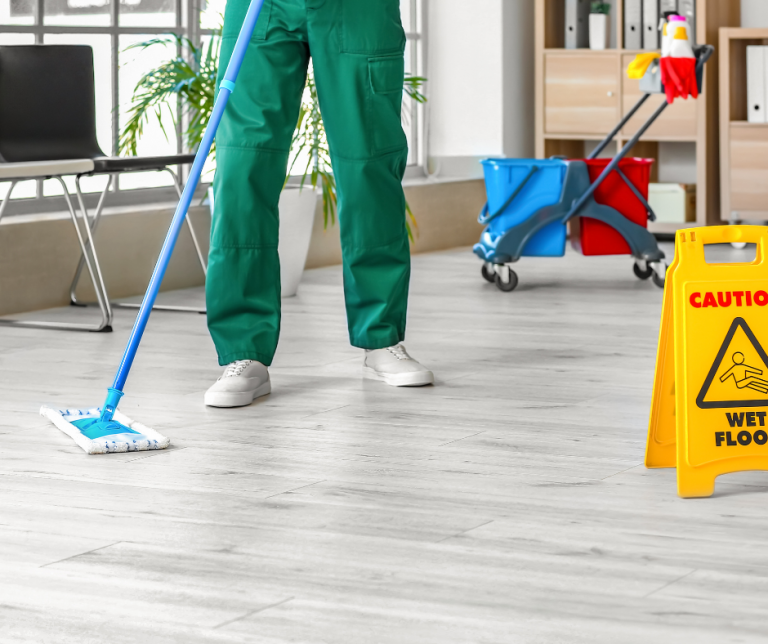Running a cleaning business involves more than just providing great service; it also means protecting the people who make that service possible. Workers’ compensation insurance is one of the most important coverages for any employer in this industry. If an employee gets hurt on the job, this coverage steps in to cover medical bills, lost wages, and more. Choosing the right workers’ compensation insurance for cleaning business operations can protect your employees, your reputation, and your bottom line.
What Is Workers’ Compensation Insurance?
Workers’ compensation is designed to cover expenses resulting from employee injuries or illnesses that occur as a direct result of their work. It protects both the employer and the worker, offering medical and wage benefits to injured employees while also limiting the employer’s liability in many cases.
State laws vary, but most require employers with at least one employee to carry workers’ comp. It’s critical to check local regulations or consult with an insurance expert to understand what’s required in your area.
Why Cleaning Businesses Need Workers’ Comp
Janitorial and cleaning jobs are more hazardous than many business owners realize. Even one accident can quickly turn into a costly claim if you’re uninsured. Top injuries include:
- Slips, trips, and falls, especially on wet or recently mopped surfaces
- Overexertion and repetitive motion injuries from vacuuming, scrubbing, or carrying equipment
- Exposure to chemicals, resulting in burns, respiratory irritation, or allergic reactions
- Cuts and punctures from razors, broken glass, or improperly stored tools
- Back injuries from lifting or transporting heavy machines
Beyond legal compliance, carrying workers’ comp signals to your employees and clients that you take workplace safety seriously. It protects your team while reinforcing your professionalism and responsibility as a business owner.
What Workers’ Comp Typically Covers
A strong workers’ compensation policy offers several key protections. First, it covers medical expenses related to a workplace injury, including hospital visits, treatments, and prescriptions. This coverage enables employees to receive the care they need without placing the financial burden on the business.
It also compensates for lost wages, offering partial income replacement while the injured employee is unable to work. In cases where recovery is long-term, the policy often includes rehabilitation costs such as physical therapy or even retraining if the employee cannot return to their previous role.
Finally, workers’ comp may cover legal expenses if an employee decides to sue over an injury, shielding your business from significant out-of-pocket costs.
Costs and Coverage: What To Expect
The cost of workers’ compensation insurance depends on several variables, starting with your total payroll and how employees are classified. Every role in your business is assigned a workers’ comp class code — a numeric identifier used to assess the level of risk associated with specific job duties. For example, a janitorial worker handling chemical cleaners or heavy equipment will be rated differently than a front-office employee. These class codes help insurers calculate your base rate, so getting them right is critical.
The type of cleaning services you offer — residential, commercial, post-construction, or specialty — also influences pricing. Just as important is your claims history and overall approach to safety. Insurance carriers apply experience modification factors, or e-mods, to reflect your company’s past performance compared to others in your industry. A strong safety record and minimal claims can reduce your premiums, while a high frequency of injuries will have the opposite effect.
While rates vary by state and insurer, most cleaning businesses will pay thousands of dollars annually in premiums. Working with an agent that understands the nuances of the cleaning industry helps ensure accurate class code assignments and fair, competitive pricing.
Choosing the Right Policy
When evaluating workers’ comp options, consider the following:
- Does the broker understand your service environment and associated risks?
- Is the policy tailored to cleaning industry needs?
- Are there additional support services, like risk assessment or claims assistance?
Avoid generic policies that overlook the specific hazards cleaning crews face. A trusted agent will also help you understand how workers’ compensation coverage interacts with other business protections, like bonds and general liability insurance.
What Happens When a Claim Is Filed?
If an employee is injured:
- Get them medical attention immediately.
- Document the incident and notify your insurance carrier promptly.
- Stay in contact with your employee throughout their recovery.
Prompt and clear communication can streamline the claims process and prevent complications down the line.
Tips for Minimizing Risk and Claims
Fewer injuries mean fewer claims, which can also lower your premiums over time. Follow these preventive tips:
- Train employees on proper lifting, chemical handling, and equipment use.
- Implement safety protocols and make them part of daily procedures.
- Maintain equipment regularly, and inspect job sites for hazards.
- Conduct audits to identify trends or common injury risks.
Protect Your Team & Business
Workers’ compensation insurance isn’t just a legal requirement; it’s a business essential. In a high-risk industry like cleaning, protecting your workforce protects your livelihood. If you’re unsure whether your current coverage is sufficient or want to explore better options, contact Moody Clean Insurance today.
About Moody Clean Insurance
Moody knows relationships are the cornerstone of good business. One relationship with a cleaning franchisor 20 years ago started it all. Since then, that one relationship has expanded and multiplied. Moody is now one of the largest providers of insurance to independent and franchise cleaning businesses throughout the country. Relationships start with a conversation, so let’s talk. We look forward to learning about your operations and sharing what we’ve learned through decades of protecting cleaning businesses like yours.




